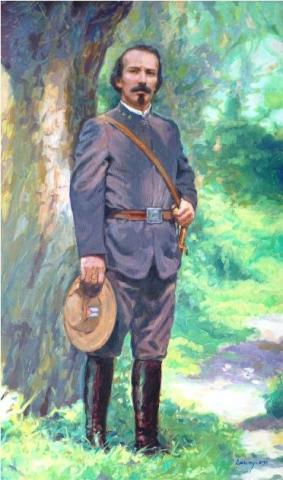
It was the night of Sunday, April 18, 1819, when in an aristocratic mansion in the then colonial Bayamo, the cry of life of the man who was born to be a landowner by family inheritance, and who, instead, against all odds, would become « the first of the Cubans who managed to give his country and his countrymen homeland and honor.
This is how Carlos Manuel de Céspedes came to the world, under torrential rain, whose very existence would become a “downpour” of continuous emotions and titanic audacity, which even at a distance of 203 years from his birth, shake us inside.
And it is difficult not to shudder at the epic heroism of a man-legend capable of the greatest sacrifices of his pocket and heart, in the name of the emancipation of his land.
A man-nation who challenged with his own resources a metropolis far superior in military forces and weapons, who managed to unite rich and poor in the jungle, who called slaves "brothers" for the first time, who turned a sugar mill into a altar of freedom, and that the responsibility of an entire people was placed on his shoulders, as the eternal Father of the Nation.
Céspedes was also a true man, who never received the salaries that corresponded to him for his services while he served as President of the Republic in Arms, who suffered irreparable losses without claiming any benefits for his family, and who was capable of facing the most harsh hardships rather than renounce the unity of Cubans or a single one of its principles. It was, in essence, “the sovereign incarnation of sublime rebellion”, as the colonel of the Liberation Army, Manuel Sanguily, described it when he died.
In fact, there is so much prowess shining through his exemplary career, that many times it is forgotten that, along with the hero, also lived the imperfect man, of deep loves and various contradictions, whose steely verb and tempestuous genius earned him both enemies and admirers.
In that human volcano that, as Martí expressed, "...made us all live," Cuba has a benchmark of dignity and decorum that we cannot ignore in any of our daily battles.
Even now, when interfering interests are intensifying on the Island with campaigns of hatred and uprooting, Céspedes's response – more than a century and a half ago – to that same old enemy, comes to us like a moral banner: "Our motto is and will always be: independence or death. Cuba not only has to be free, but it can no longer be a slave again.

Leave your comment